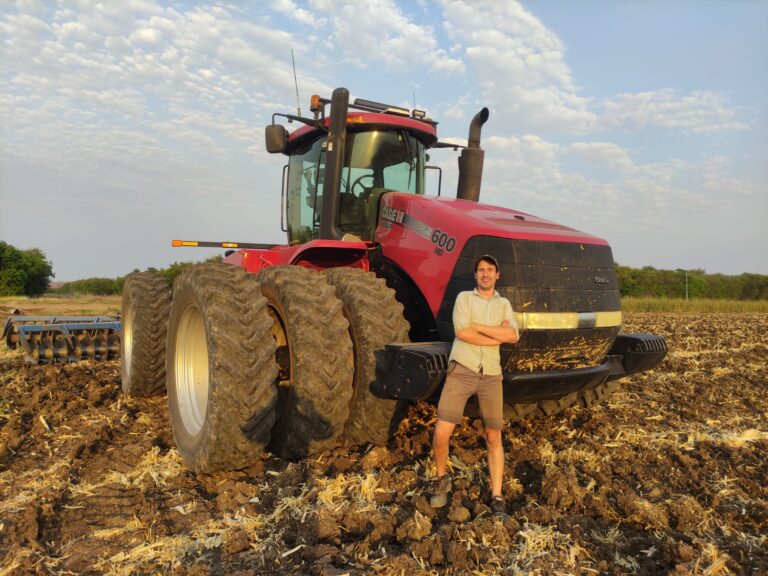Where did you end up?
I ended up in North West Australia in the town of Kununurra. I work there with a German farmer alongside another Dutch guy, on a beautiful farm where I get to do a lot of varied work. Most of it involves preparing the land after harvest for the rainy months and then subsequently for planting and sowing. This includes tasks like mulching, ripping, cultivating, and fertilizing. In between, I spent a week operating a tractor for a contractor to harrow the cornfields. Since our team isn’t large, there’s a lot to do in a short period, which provides variety in the work.
Is it as you expected?
Well, what can you expect? What’s different from what I expected is the season; it’s initially too wet to do anything on the land, then suddenly the temperature rises, the drought sets in, and you have to act quickly within practically two months. I also expected the crop harvesting to be more spread out, but within 4 to 5 weeks, the harvesting is done, and the land is prepared for the next season. Harvesting is done with only two people, so there’s less of the team effort I had hoped for. It’s also interesting to find out that some things are done similarly to the Netherlands, while others are completely different. For instance, the shops here are almost identical to those in the Netherlands.
The people, however, are different – much easier-going and laid-back. No stress. And all very friendly. Environmental legislation is different compared to the Netherlands. Waste is burned, chemicals are sprayed from planes, and burning corn stubble saves diesel compared to mulching.
How do you live?
We live close to the farmyard. It’s well-organized. Some colleagues live in the main house; I’m about 50 meters from the main house in a donga. This is a type of living unit without a kitchen but with a bed and a shower. It’s perfect for just me.
Besides the work on the farm, the landscape is truly fascinating. If I were to compare it, it’s a bit like Flevoland in the desert.
This area was created. With the construction of the dam, the entire land and the valley became agricultural land, attracting many farmers to immigrate here. Since 1959, the irrigation program for the Ord River was approved, and they work here with meters-long irrigation systems. The system is quite simple and a bit old-fashioned, but it works.
The weekend
Sometimes we work through the weekends, and sometimes we have them off. I went to the reservoir with my Dutch colleague, Huub, and to another cool spot called Secret Springs. The environment there was so beautiful.
Tips for future adventurers
For me, this was a fantastic experience and a great opportunity not to just see the main sights as a tourist but to truly become part of the community here. This way, you get a much better understanding of what’s happening, how the land works, and how the unique history of the land influences the people.
